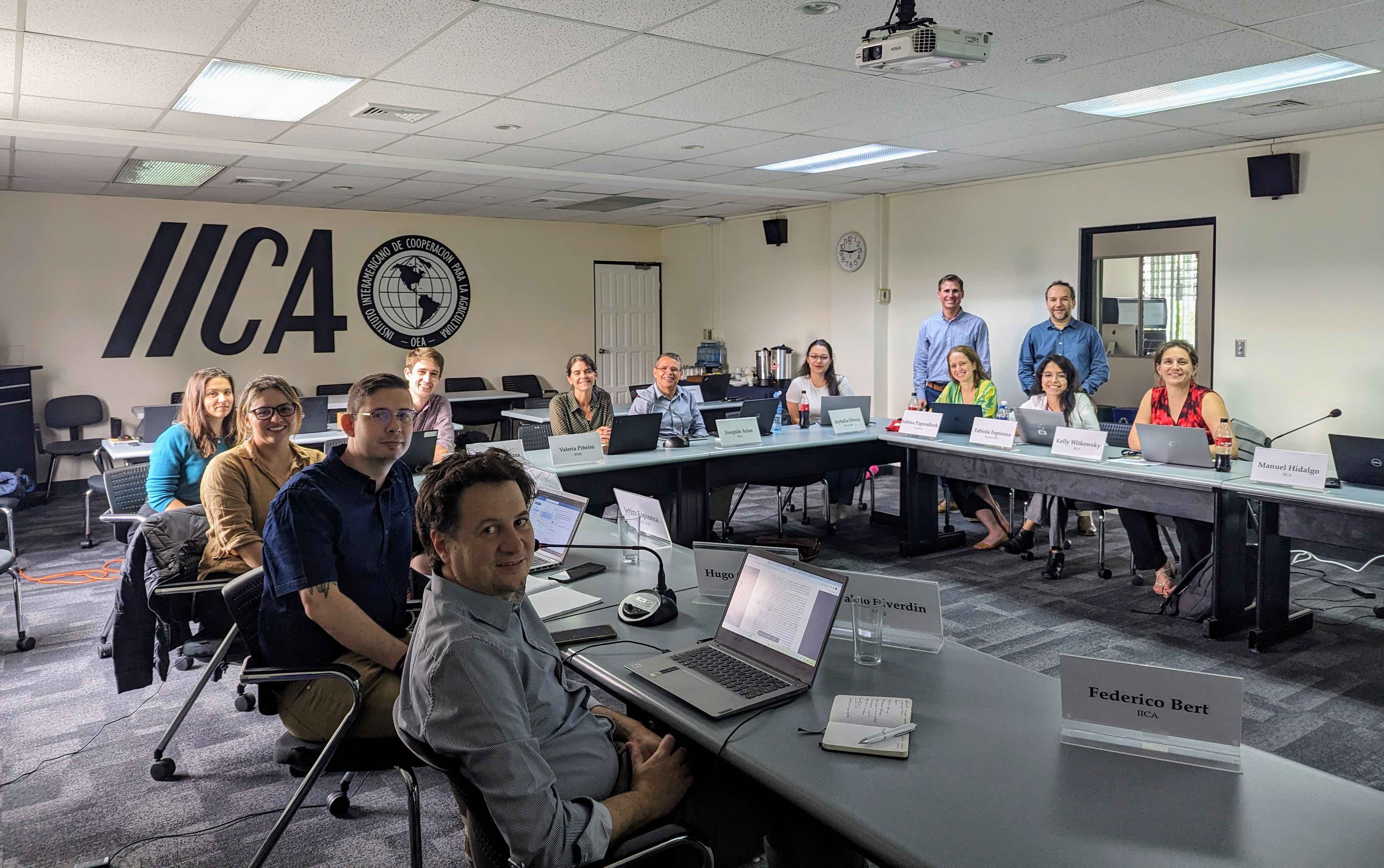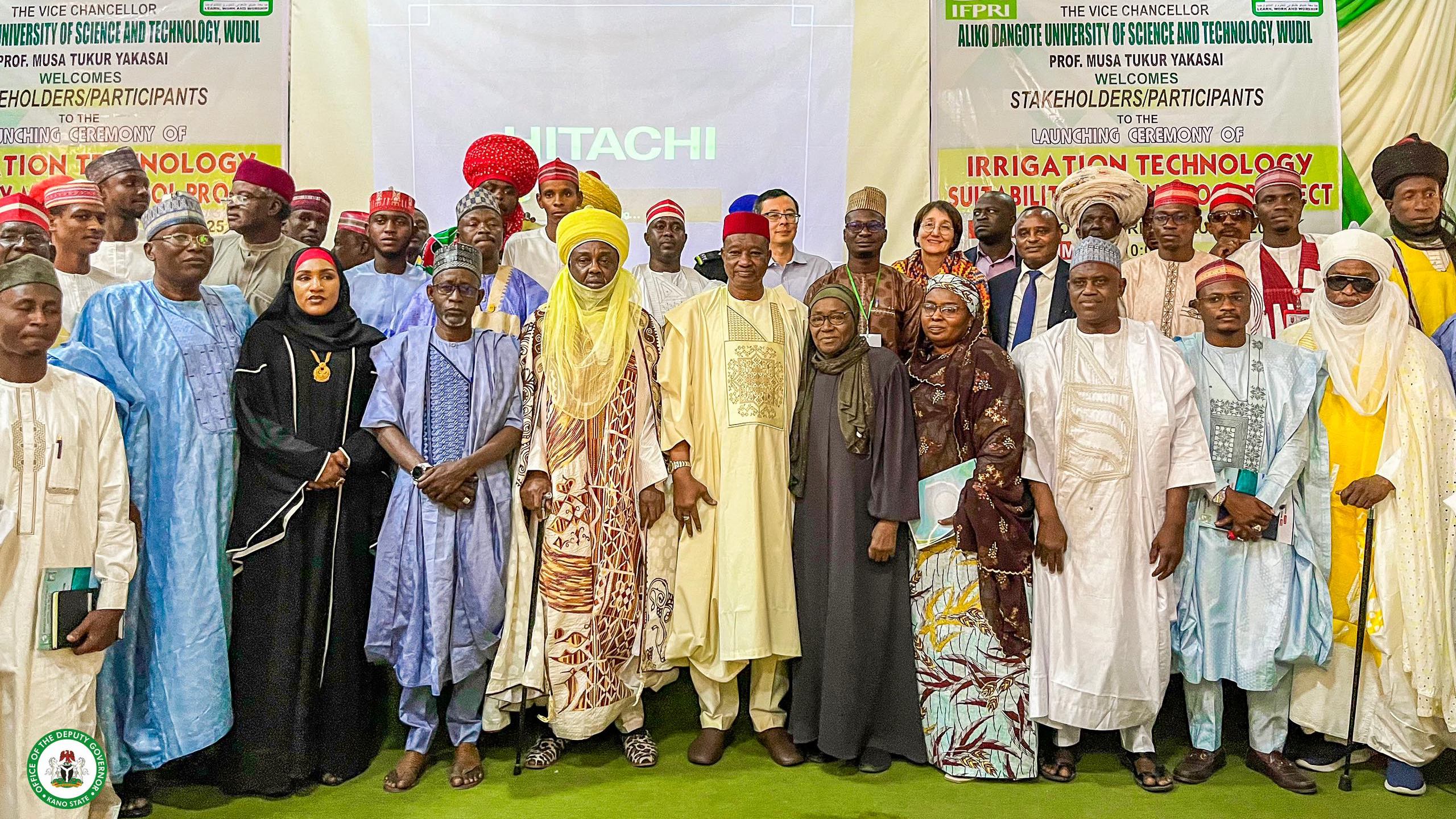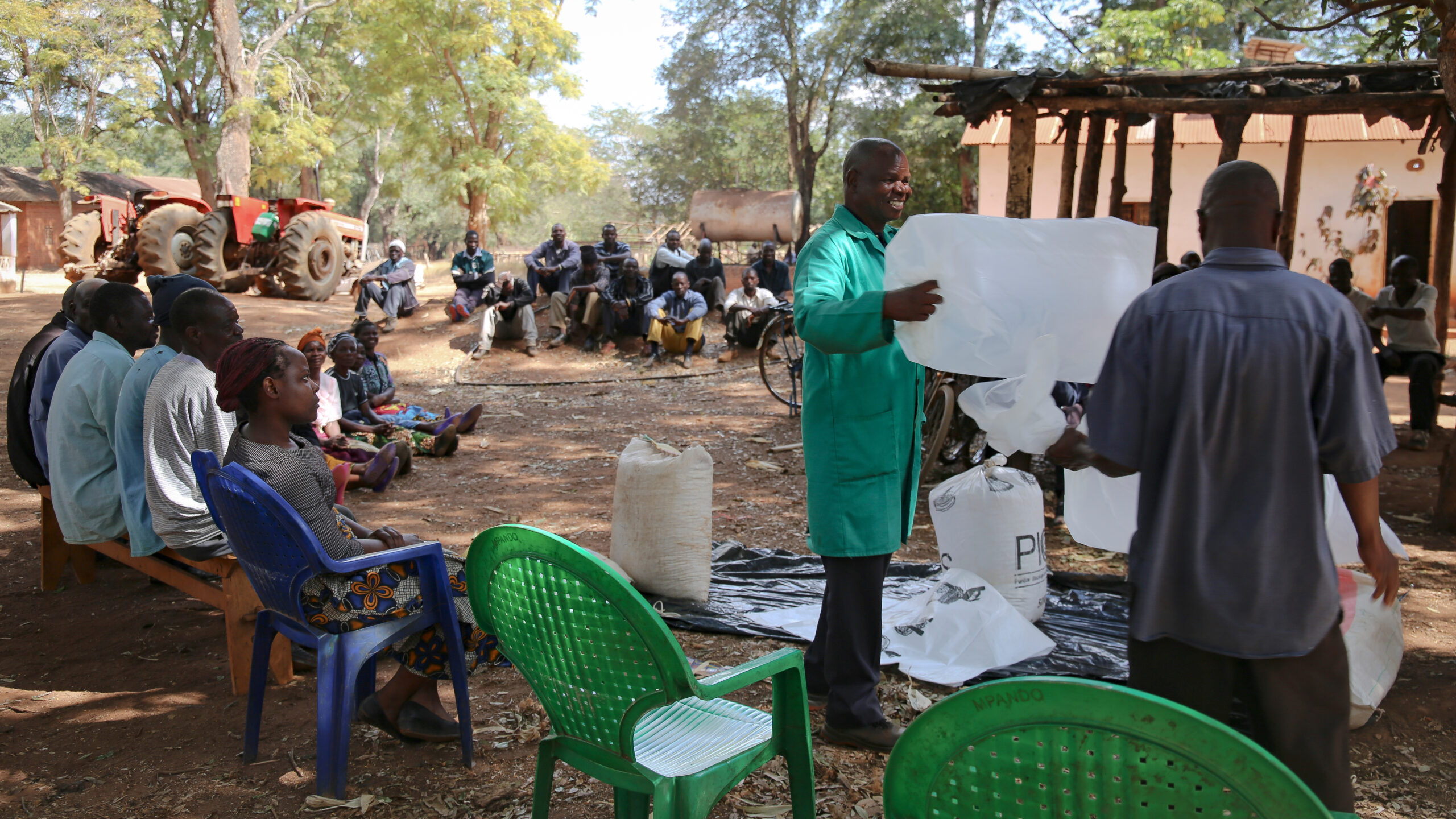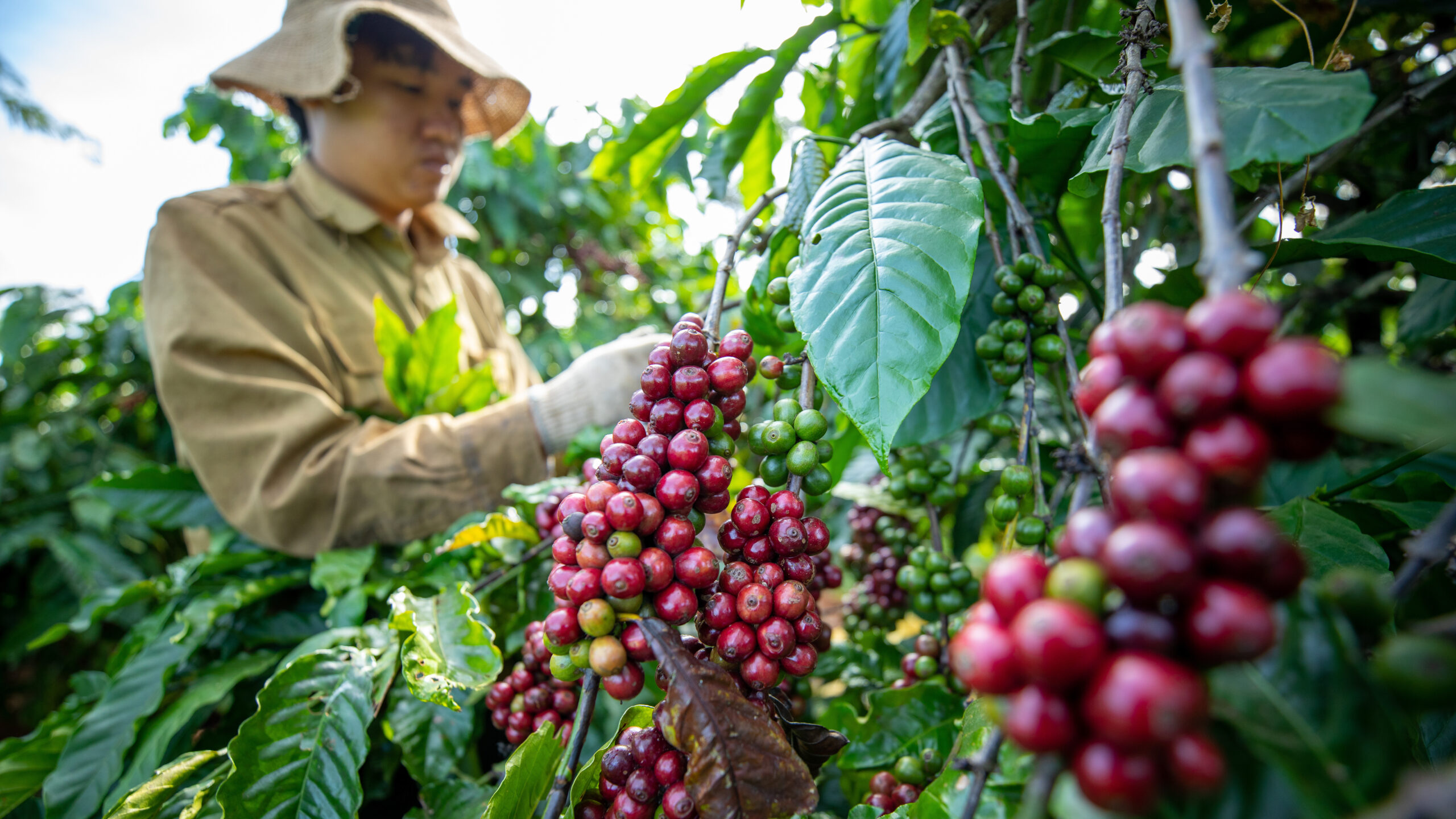Food systems in Latin America and the Caribbean (LAC) can be made more sustainable, providing healthier diets and better livelihoods while reducing greenhouse gas emissions and environmental destruction. Across the region, many food systems actors have implemented a range of innovative solutions to pursue these goals—but it is not always clear which innovations have worked best and in what contexts.
To address that issue, experts from a dozen agricultural and environmental organizations gathered at the headquarters of the Inter-American Institute for Cooperation on Agriculture (IICA) in San Jose, Costa Rica, on September 7 and 8 for the Avanzar2030 workshop. This project, led by IFPRI in partnership with IICA and the University of Notre Dame, seeks to identify policies, technologies, and institutions with the greatest potential to bring about sustainable innovations in Latin American and Caribbean food systems. The team will pursue this goal by synthesizing the wealth of existing research and policy guidance into actionable knowledge. The workshop brought the research teams together to establish a common understanding of literature synthesis, identify the key concepts underpinning food and agricultural system transformation, and begin to establish a research strategy that will provide insight into these concepts.
Valeria Piñeiro, Acting Head of IFPRI’s Latin American region and Senior Research Coordinator, the initiative lead, described the value of this literature synthesis: “A huge number of innovations for sustainability food systems are being implemented across the [LAC] region. Rather than introducing more new policies, technologies, and institutions, we should build on what already works. This is the idea behind Avanzar2030.”
An evidence synthesis is a systematic and unbiased analysis of all available literature on a specific research question. To ensure this is objective and exhaustive, a protocol outlining the entire process is defined in advance and made publicly available. Figure 1 details the different stages in the evidence synthesis process. A machine learning application is used in the process to accelerate the study selection and the eligibility assessment steps, allowing the researchers to collect and screen tens of thousands of papers.
Figure 1
Avanzar2030
Over the two days, participants discussed a range of issues to establish a solid foundation for the upcoming research process. They framed major concepts that will be used to scan databases for relevant literature and determine what information is ultimately included in the synthesis. For example, much of the conversation revolved around agreeing to a clear and concise definition for food and agricultural systems. These systems incorporate a wide range of policies, technologies, and institutions along with food products and activities. Placing clear boundaries on this web of different components is challenging, but the researchers eventually agreed on the following definition based on one established by FAO :
The food and agriculture system covers the journey of food from farm to table—including when food is grown, fished, harvested, processed, packaged, transported, distributed, traded, bought, prepared, eaten and disposed of. It also encompasses non-food products that also constitute livelihoods and all of the people as well as the activities, investments and choices that play a part in producing, preparing, and distributing these food and agricultural products.
Another critical component of the project is establishing a common understanding of sustainability. Participants agreed that viable interventions should be sustainable across four dimensions: They must be both environmentally and economically sustainable, minimizing impacts on the natural environment and limiting greenhouse gas emissions while providing opportunities for better livelihoods and production. They must also be socially sustainable, having wide ranging benefits across social groups, and sustainable from a governance perspective, overcoming political hurdles and fitting within existing legal systems.
Workshop participants also agreed on an approach to gathering the papers for the evidence synthesis. They identified databases to be searched, and established selection criteria for the final list of papers to be extensively analyzed. The teams decided to include gray literature (i.e., from outside commercial/academic publishing) in the synthesis to obtain a comprehensive review of recent interventions implemented in Latin America and the Caribbean. Specific sources of gray literature were also identified in collaboration with librarians from IICA-Catie and the Brazilian Agricultural Research Corporation (Empraba). Among the sources included will be: International organization papers (including research centers, development banks, extension agencies), conference papers and proceedings, and country-level reports (notably Climate Pledges and evaluation reports, both from the government and evaluation agencies).
Participants laid out specific selection criteria for the final list of papers for in-depth analysis. For example, only papers with an explicit focus on interventions implemented in Latin America and the Caribbean will be included, given that the primary goal of Avanzar2030 is to provide guidance for policy interventions in this region. Following extensive discussions and research screenings, the year of the 2008 global food crisis was chosen as the starting point, as it provided a reasonable number of papers and covered a sufficiently long period to avoid selection bias in the analyzed interventions.
Avanzar2030 is an initiative developed as a continuation of Ceres2030, a project that conducted eight evidence syntheses, published in Nature, providing recommendations on how best to target intervention spending to achieve zero hunger by 2030. Avanzar2030 was then developed as one of Hesat2030’s core initiatives to address the urgent need for evidence focused on Latin America and the Caribbean. Moving forward, the researchers will finalize their search strategy and conduct a mapping exercise to take stock of the landscape of innovative agrifood policies, technologies, and institutions in the region. Once this is complete, the team will focus on several prominent interventions and conduct deeper analysis into their characteristics and efficacy. Ultimately, the project aims to identify the potential sustainability impacts of investing in these innovations using economic modeling.
Elsa Olivetti is a Research Assistant with IFPRI’s Markets, Trade, and Institutions (MTI) Unit; Brian McNamara is an MTI Program Coordinator.







